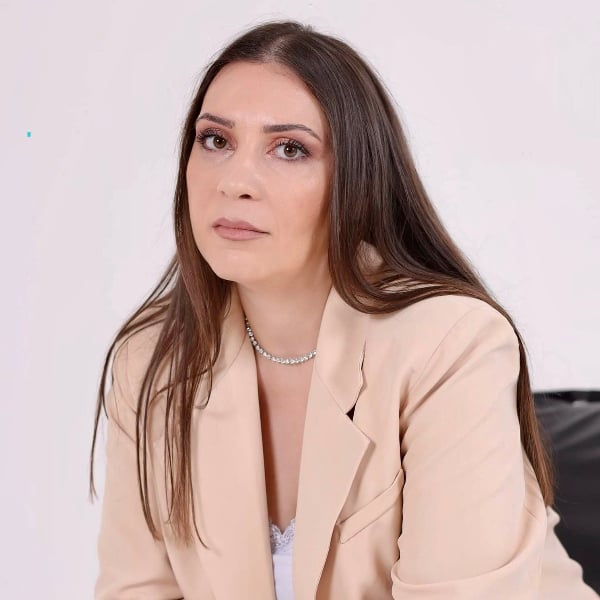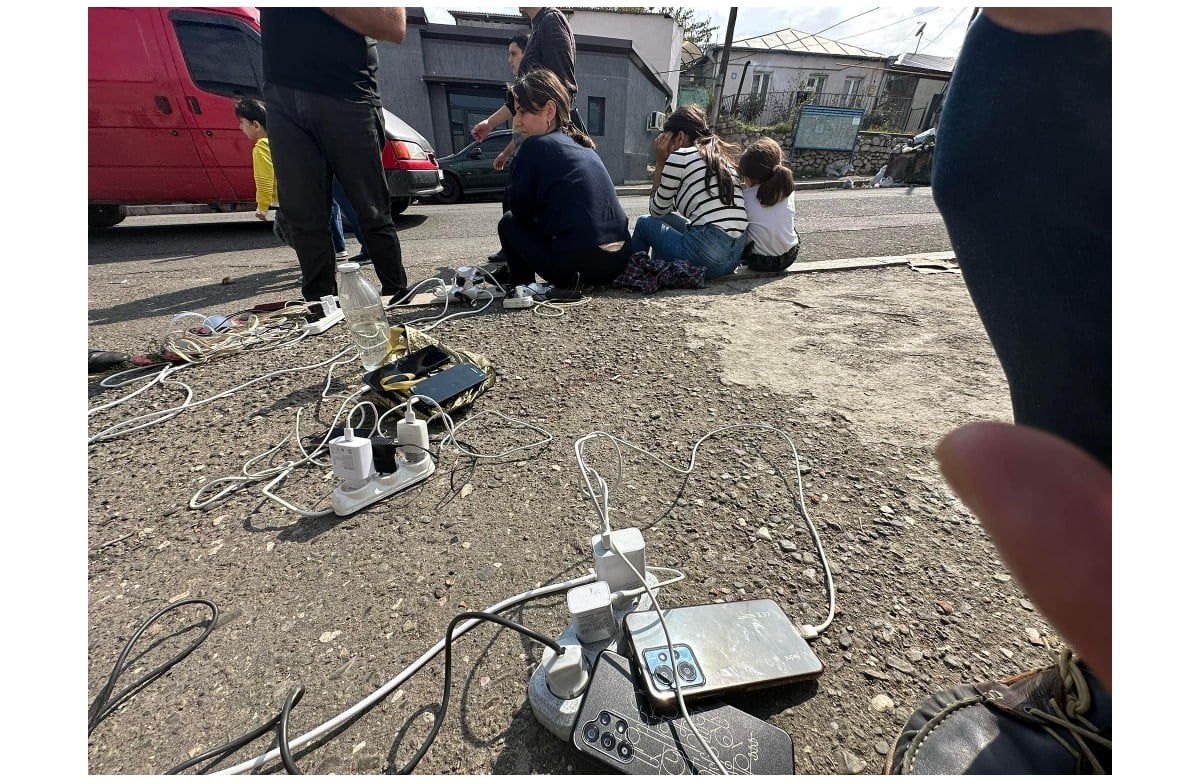Despite the challenging circumstances in Nagorno-Karabakh, the local media continued reporting on the events. Throughout the nine-month-long blockade and three days of bombing, journalists worked tirelessly to fulfill their professional duties, often risking their lives in the process. They faced numerous technical difficulties but still managed to cover the events and provide accurate reporting to the public.
We talked about these and other issues with journalists displaced from Artsakh to Armenia.
Norayr Hovsepyan, director of the news department of Artsakh Public Television
We hope to create a working platform for Artsakh journalists
Technical issues exacerbated during the blockade. We scheduled the filming and broadcasting times to coincide with the periods of electricity outages. We encountered difficulties recharging the equipment. Initially, we used generators to solve the electricity problem, charge the equipment, and turn on the computers for editing purposes. However, these solutions became increasingly limited over time.
For the last three to four months of being in the blockade, we could not film outside of Stepanakert due to the lack of fuel. We attempted to find individuals who could capture footage from the villages, even if it was just on their phones. However, this was also challenging because communication was limited, and often, people were unable to send the footage they had captured.
During military operations, broadcasting stations were damaged, and the main spreading station was targeted, leading to the television ceasing to function. This resulted in an inability even to broadcast news about the bombing of Stepanakert. For the following two days, we utilized the Internet to post materials on YouTube and Facebook. However, this was short-lived, as people had to evacuate and could not continue working.
We managed to bring some of the television equipment to Armenia with the hope of establishing a functional platform for Artsakh journalists.
Working as a journalist in Artsakh has always been challenging. Although we did not have to queue for bread at night, we had our fair share of difficulties and worked tirelessly.
Censorship has always existed, with certain rules and limitations in place. As the situation escalated, the list of prohibited content grew to prioritize security. Anything that could potentially harm us was not broadcast.
Marut Vanyan, independent journalist
I found myself in a situation where I was trying to help a wounded animal, but it ended up biting me out of distress
The blockade of Artsakh led to an information blockade, affecting my journalism work. During this time, I didn’t work for local media; instead, I collaborated with international media outlets. Though no one instructed me on how to work, I felt I was imposing self-censorship on myself.
As a journalist, I always consider the consequences of my actions before shooting or publishing anything. We are taught to “not harm,” but sometimes it’s unclear what may cause harm and what won’t. In some circumstances, it’s challenging to determine what is a military secret and what isn’t. It’s like trying to help a wounded animal, but it bites your hand in pain. Even though you’re helping it, you don’t want to hurt it further because it’s resisting your help.
During those difficult times, I witnessed people queuing up for hours to buy bread, only to return empty-handed. Women would faint in those endless lines. I wanted to capture their struggle through my photography and share their pain with the world, hoping to create awareness that would resolve their plight faster. However, people were angry and hostile towards me, refusing to be photographed and avoiding the cameras. They even fought with me and warned me not to take pictures, saying that in Azerbaijan, people would be pleased to see us in a bad situation.
I faced numerous technical issues, such as regular power outages, weak internet connectivity, and the inability to send most of the footage. I could only turn on my computer for a few hours to edit the material. However, the Internet would get disconnected whenever I tried to send it. Organizing work with the international press was difficult, causing missed deadlines and feelings of irresponsibility.
During those days, the fight against disinformation was also impacted. Due to the tense situation, many would hear something and rush to publish it without verifying the news from multiple sources; this led to increased panic among people. Moreover, there were instances of copyright infringement as well. Videos were being shared without proper authorization.
Hayk Ghazaryan, journalist of the Karabakh office of CiviNet
Being approached on the street by someone holding a microphone and camera is not common for us
During times of war, everything around us seems like potential journalistic material, but this isn’t always the case. Numerous questions arise when you pick up the camera to take a photo. Will publishing this image cause harm to anyone? Does this information contain sensitive state or military secrets? Once you’ve answered these questions, you realize the amount of material suitable for publishing is limited.
Furthermore, people’s attitude towards the media has become increasingly negative. They are unwilling to be photographed or interviewed, and even filming on the phone is often unwelcome.
they are so apprehensive that they once attacked me after I covered an event.
Regarding journalism, there are notable differences between Yerevan and Stepanakert. In Armenia, journalism has developed significantly over the years, resulting in a better understanding among the general public regarding the role of journalists and the purpose of media. Consequently, people are more open to interacting with the media. My friends were surprised by the number and behavior of Kornidzor journalists when they came to Armenia. We are not accustomed to being stopped on the street and asked questions by someone with a microphone and camera. And under such psychological conditions, when they are embarrassed by the “refugee” label, they have not eaten or rested properly for months; they have lost their homes.
That is why I confined myself to shooting events and conducting interviews with officials and experts.
Gayane Gevorgyan, Azat Artsakh newspaper journalist
We were trying to understand what the enemy could use against us
Upon learning that Artsakh was under blockade, the newspaper, which had been well-established and even started printing in color, had to cease operations as it was originally printed in Yerevan and later transported to Artsakh. Under the blockade conditions, continuing publishing was simply no longer feasible.
The number of visits to the online newspaper’s website increased during that time. We started writing articles exclusively for the website, which enabled people to get urgent information quickly. This move also helped us to prevent possible layoffs, as the newspaper staff started working for the website.
During that time, there was no formal censorship in place. However, we were cautious about what we wrote, keeping in mind what information could potentially be used by the enemy. For instance, we refrained from reporting on birth and death rates. Instead, we focused on documenting the challenges that arose due to the blockade, and sharing personal accounts of the people affected by the economic situation.







